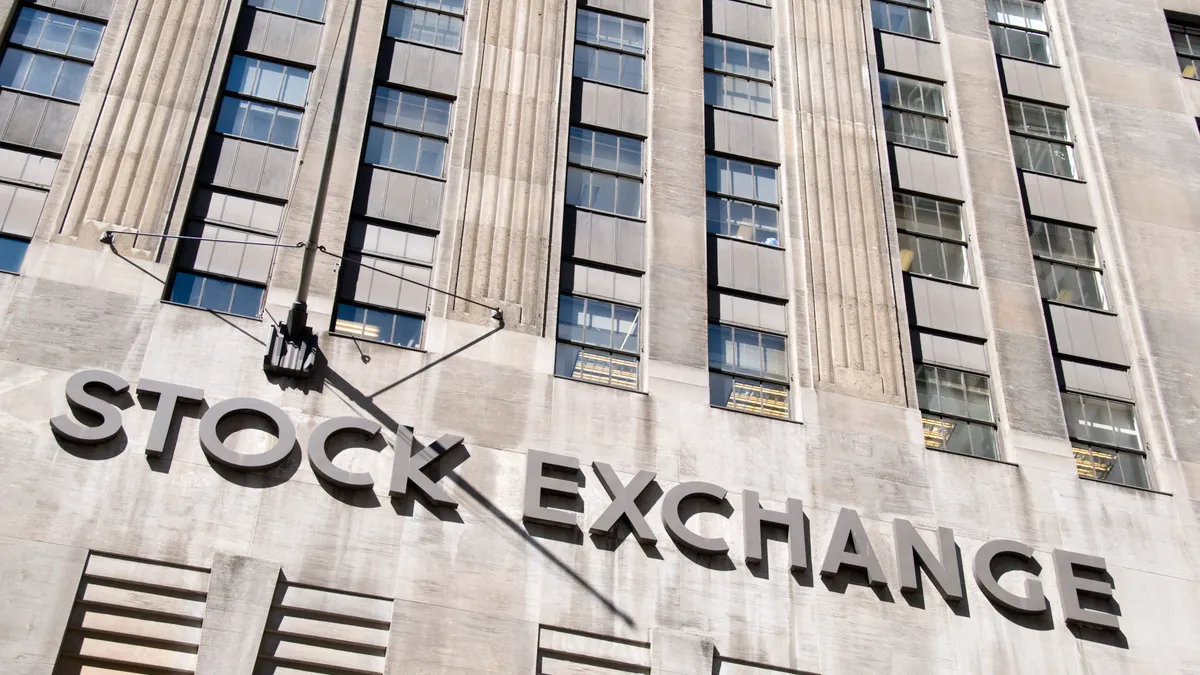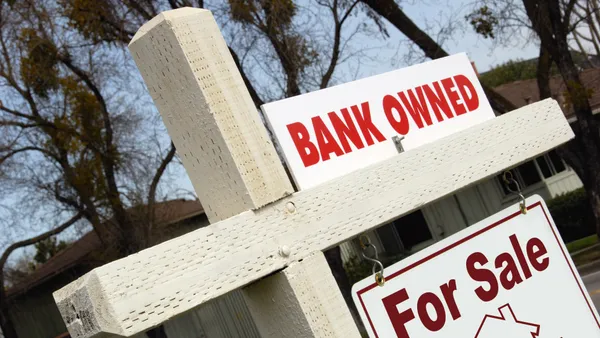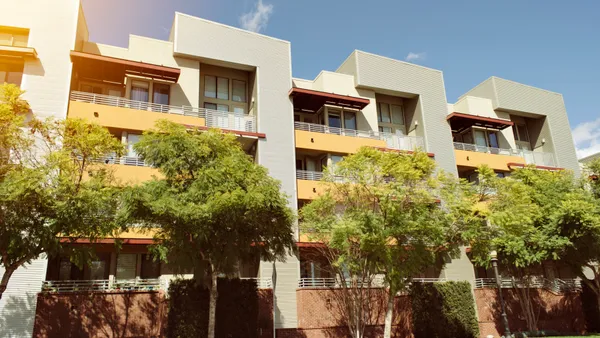Last fall, a number of apartment REIT executives pointed to deteriorating pricing power, especially for renewals, as they dealt with new supply in many of their markets.
While those concerns linger for a number of REITs, Equity Residential kicked off the recent fourth-quarter earnings season with some hopeful news and renewal rates at 5.1%. It helps that the Chicago-based firm has low exposure to new supply in a number of its markets and a customer base that spends about 20% of its income on rent, according to CEO Mark Parrell on the firm’s Q4 earnings call last week.
In 2023, fewer than 8% of EQR’s residents moved out to buy new homes, which was an all-time low for the company.
“Overall, with low unemployment and rising real wages, our target renter demographic remains in good shape,” Parrell said. “They are likely to rent with us longer as the prospect of homeownership in the near term seems less likely with scarce inventory and relatively high mortgage rates.”
Here are three other takeaways from EQR’s earnings report and call:
Slowing growth
EQR’s Q4 revenue growth was better than it anticipated in December, as the company maintained occupancy at 96% and maintained positive blended rent growth, according to Michael Manelis, chief operating officer.
“This set us up for a good start in 2024,” Manelis said. “Demand was solid across our markets and consistent with seasonal expectations.”
In 2023, EQR’s growth was supported by what Parrell called “a strong employment situation,” with more than 2.7 million jobs created. That kind of growth probably won’t continue, but the CEO is still optimistic.
“While the 2024 outlook for overall jobs is more muted, we should benefit from a continued low unemployment rate for the college-educated, which currently sits around 2.1%, as well as continued good real wage growth,” Parrell said.
EQR projects same-store revenue growth of 2% to 3% in 2024. It assumes renewal rate growth for the year at just over 4% and relatively flat new lease changes. “We expect the year to follow the traditional pre-COVID historical patterns with rent growth sequentially picking up in the spring and likely peaking in August,” Manelis said.
Expenses decline
If rent growth slows in 2024, Parrell thinks EQR will be well-positioned to operate more efficiently. “We'll preserve cash flow for our shareholders as rent growth slows across the country and positions us well once growth picks back up,” he said.
BY THE NUMBERS
| Category | Q4 | YOY Change |
| Property revenue | $711.8 million | 3.9% |
| Net operating income | $495.3 million | 5.0% |
| Operating expenses | $216.4 million | 1.3% |
| Funds from operations | $1.00 | 3.1% |
| Rent per unit | $3,073 | 4.0% |
| Occupancy rate | 95.8% | 0% |
SOURCE: EQR
In Q4, EQR’s expenses grew 1.3%, which was consistent with its expectations. “On the expense side, our low growth in the quarter and full-year 4.3% growth were helped by modest property tax cost as well as the savings produced as we continue to roll out initiatives focused on creating operating efficiencies and a seamless customer experience,” Manelis said.
In 2024, the company will continue to focus on producing efficiencies and driving additional income with initiatives around flexible living options, parking, renter's insurance and monetizing resident-facing technology.
“We are almost complete with the rollout of smart home technology across our portfolio, which will create further opportunities to share teams across properties and enable additional self-service options for residents,” Manelis said. “This, along with other ancillary income, should lead to total other income growth of 30 basis points excluding bad debt.”
EQR expects taxes and utilities to grow faster in 2024 than they did in 2023, while payroll and maintenance should have slower growth. “Insurance, a small category at less than 5% of total expenses, but a topic often discussed, should grow more slowly than last year, but remain above the long-term trend with growth in the low-double-digits,” said CFO Robert A. Garechana on the call.
West Coast improvement
For REITs that own apartments on the West Coast, San Francisco and Seattle have been persistent problems since COVID-19 first hit in March 2020. As workers stayed home, the downtowns in both cities suffered.
Supply in Seattle and job conditions in San Francisco will slow the recovery, but Parrell sees signs of “improvement in quality of life and energy on the street” in both markets. In 2024, that equates to slightly positive same-store rent growth in both cities.
“We continue to believe a recovery in rental rates in the downtown submarkets of these metros is coming and expect our shareholders will benefit from catch-up rental growth in these places, where rents are still at or a fair bit below 2019 levels and where incomes, both on a nominal and real basis, have risen substantially since 2019,” Parrell said.
In the fourth quarter, EQR saw “outstanding revenue growth” on the East Coast and “good growth” in Southern California, according to Manelis. In 2024, he expects those areas to again lead the way.
“Orange County, San Diego, Boston and Washington, D.C., will lead the pack with expected revenue growth of approximately 4%,” Manelis said. “New York and LA will follow closely behind.”
Click here to sign up to receive multifamily and apartment news like this article in your inbox every weekday.





































